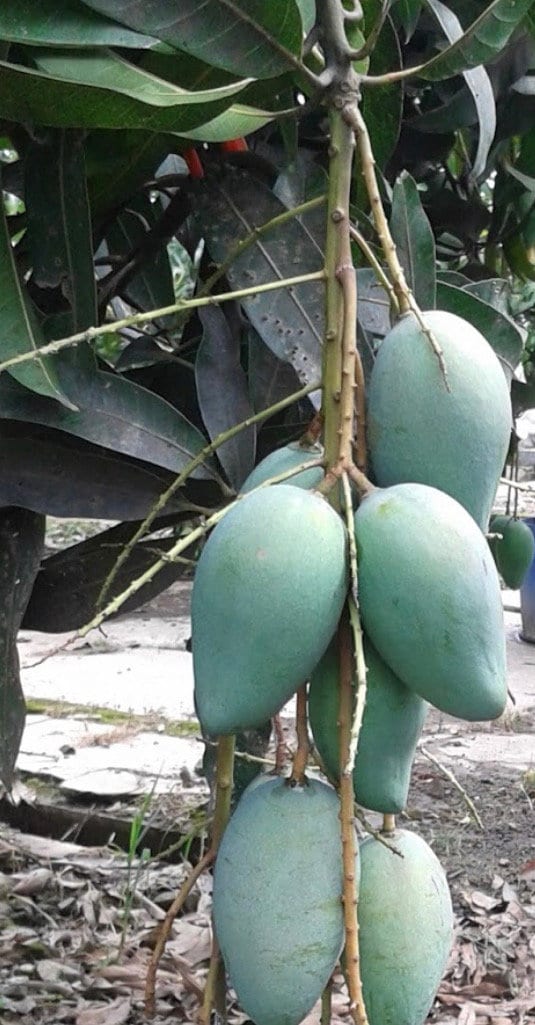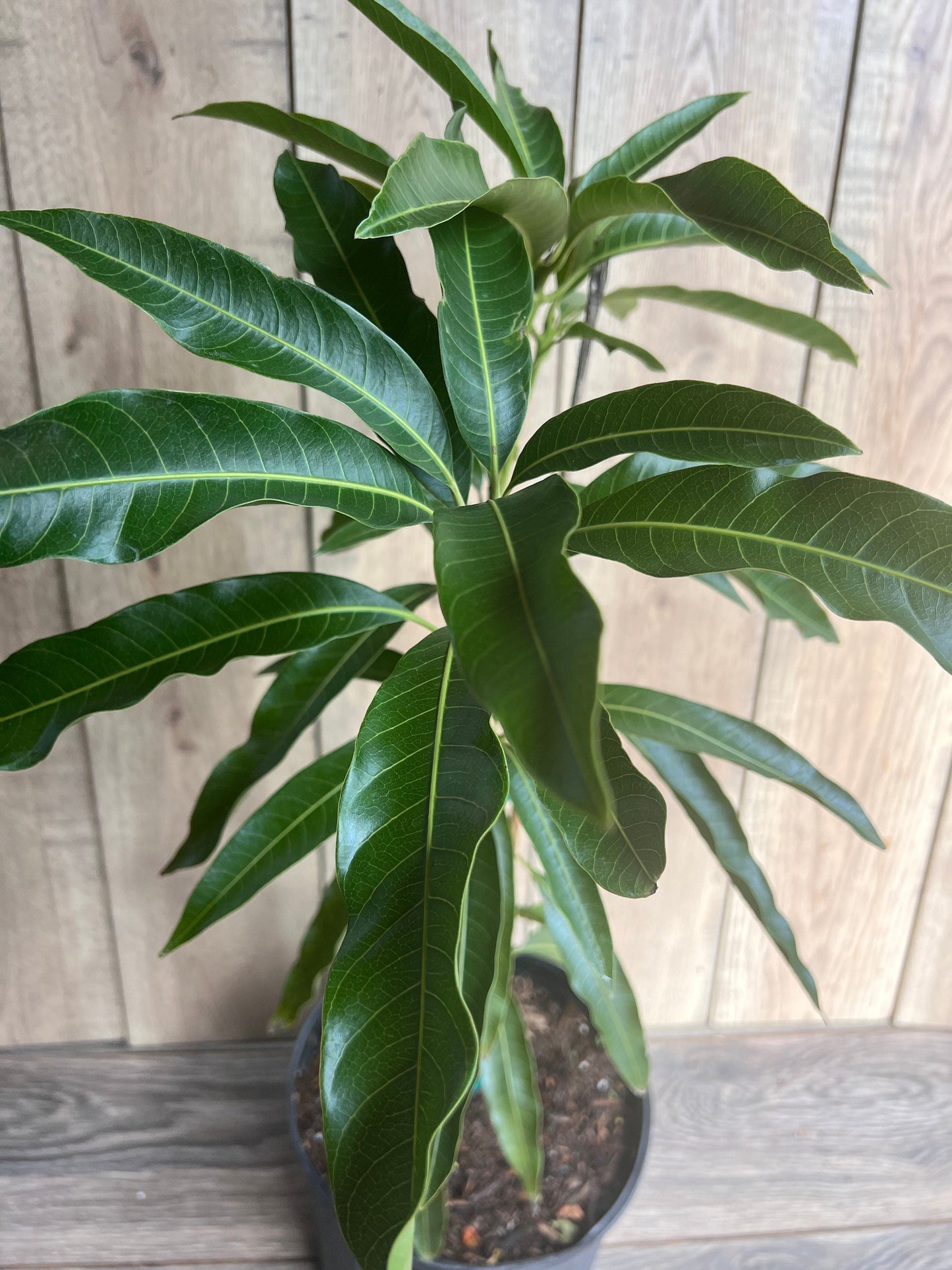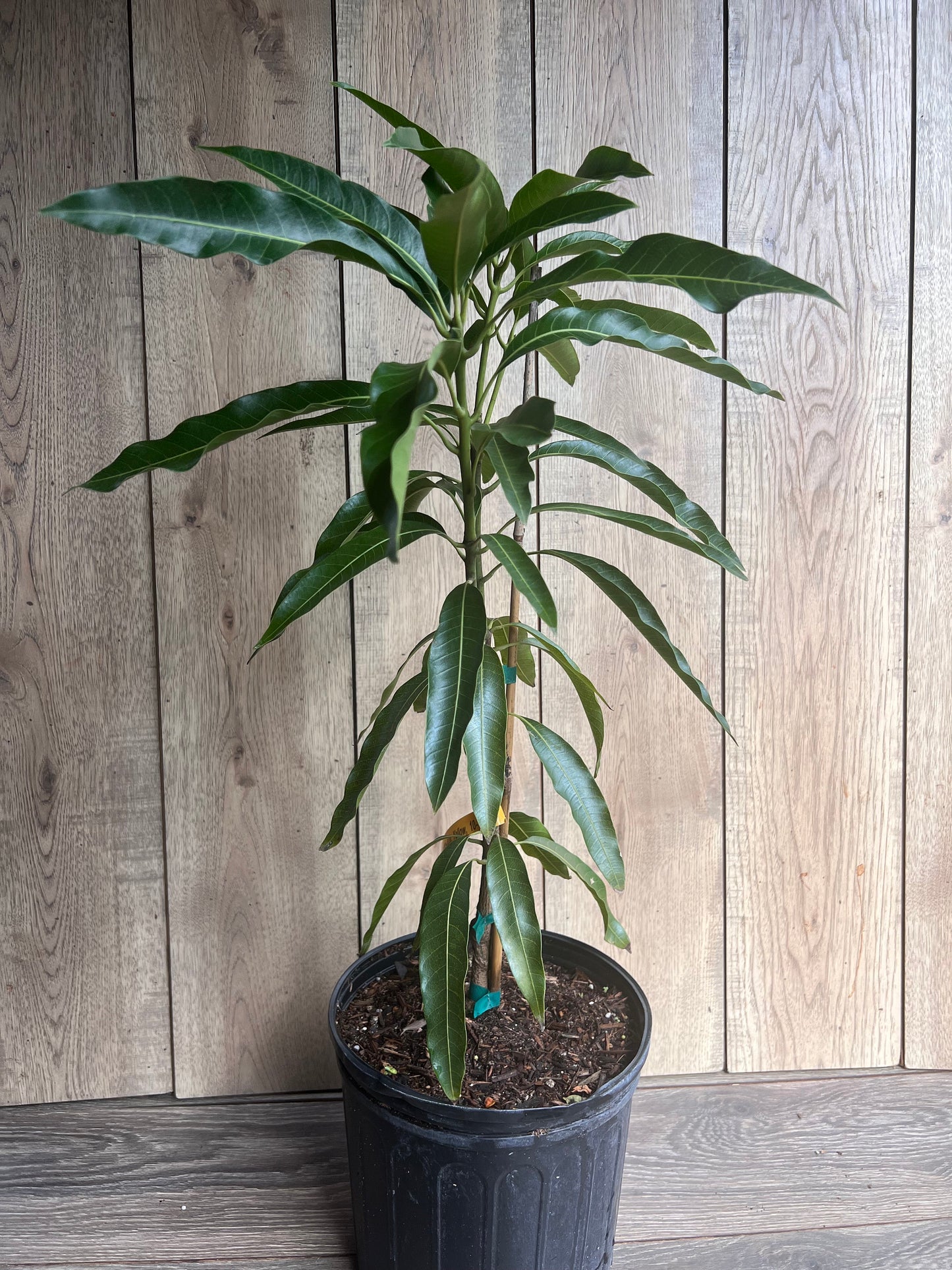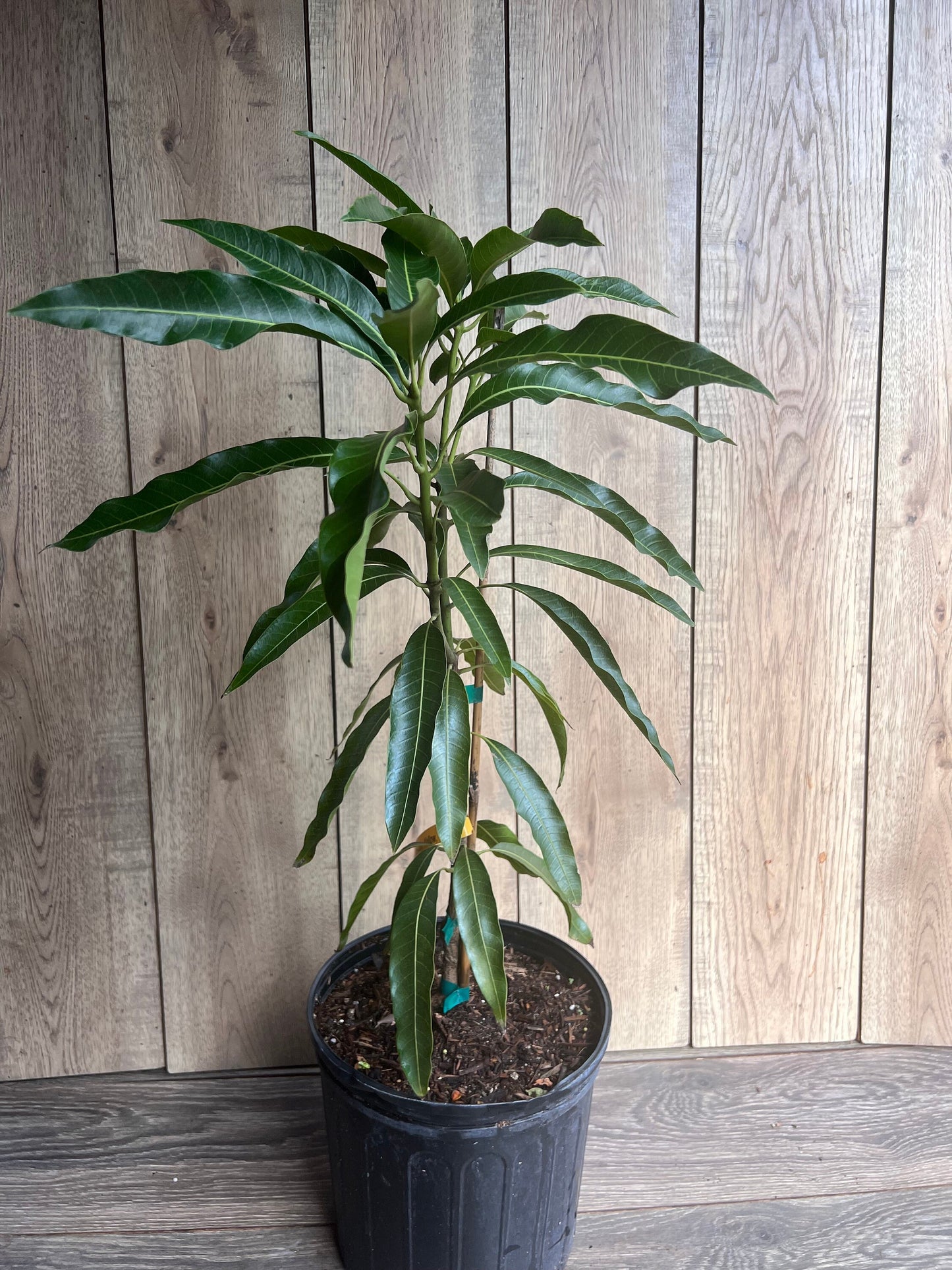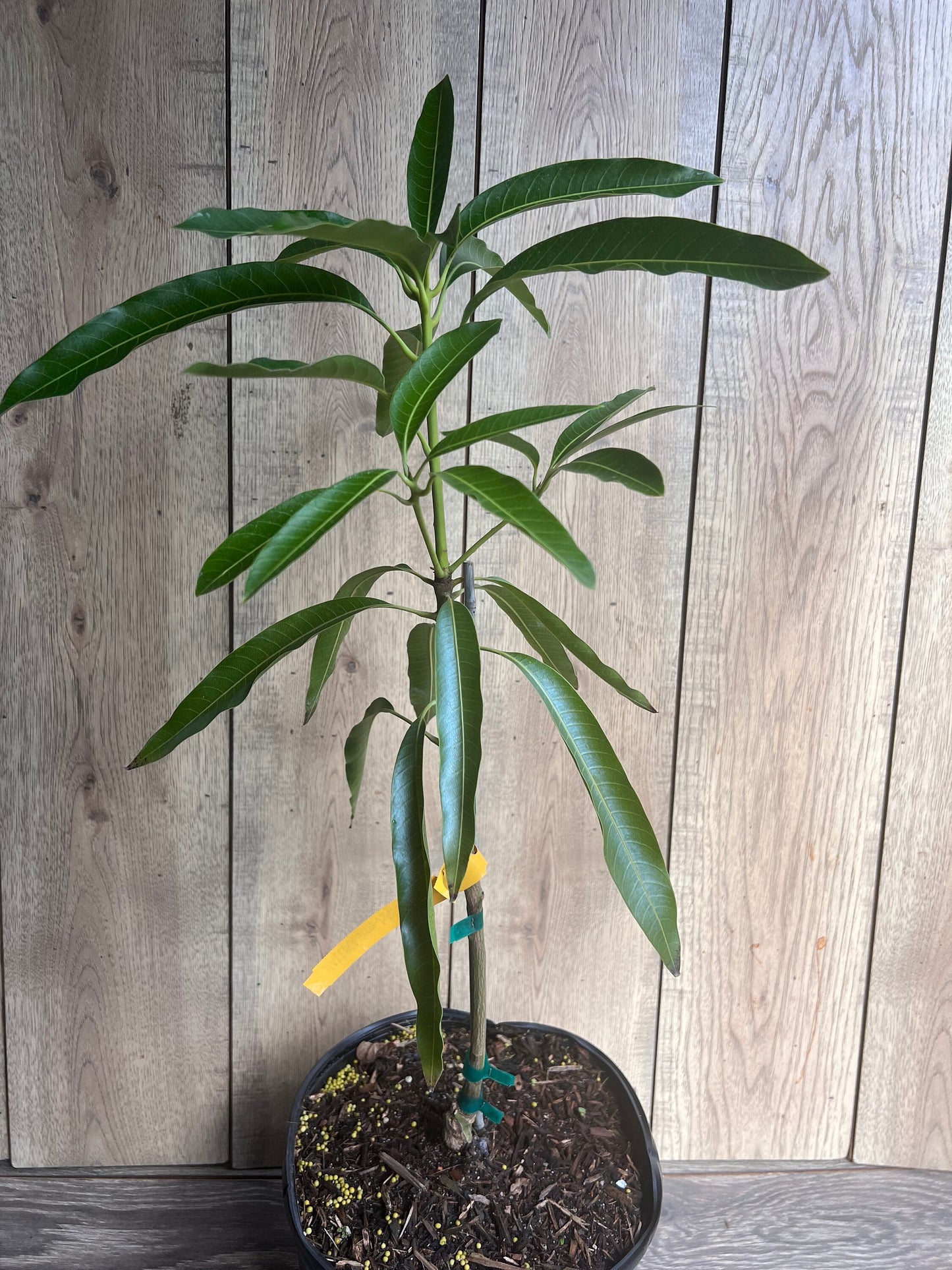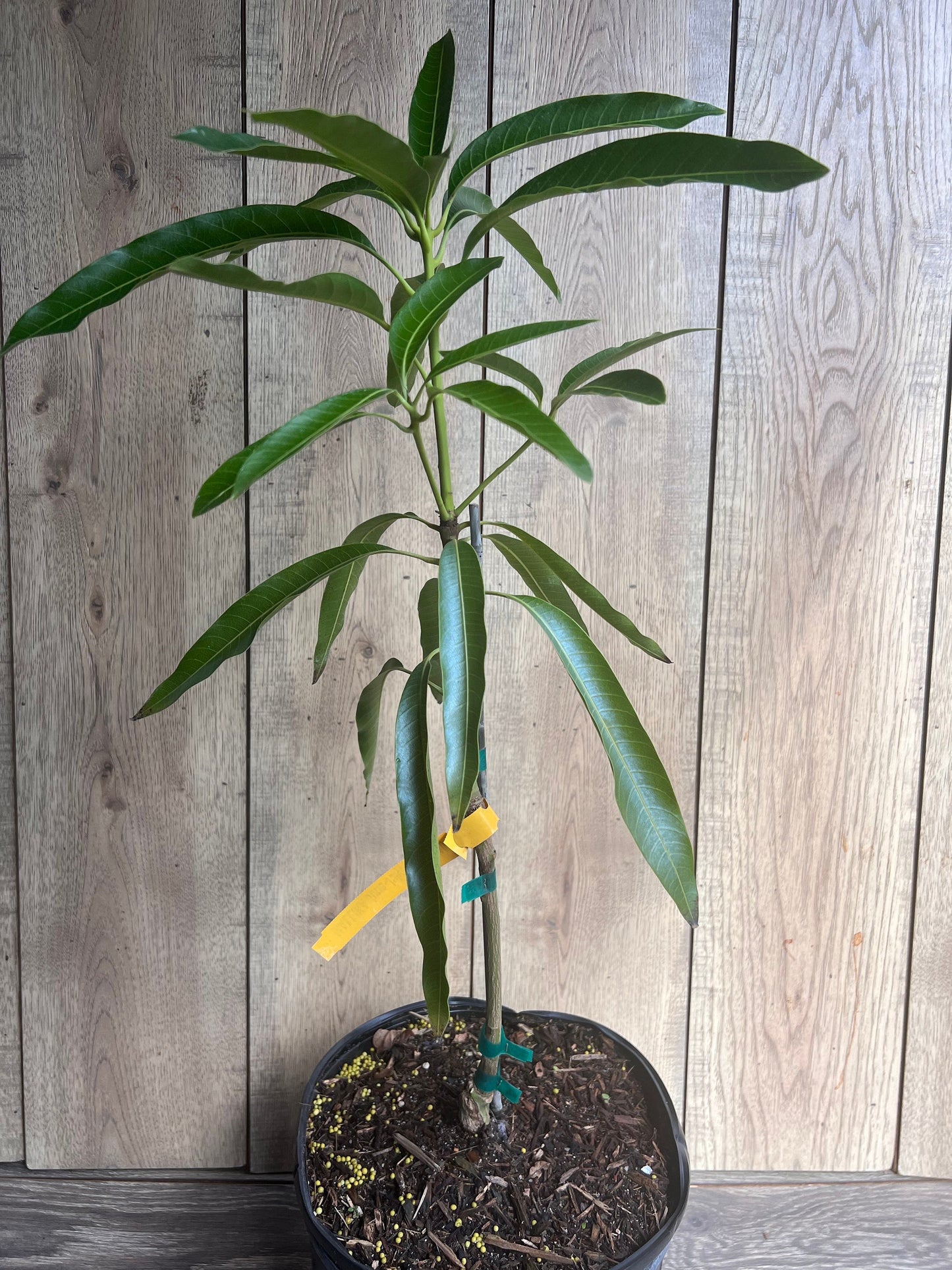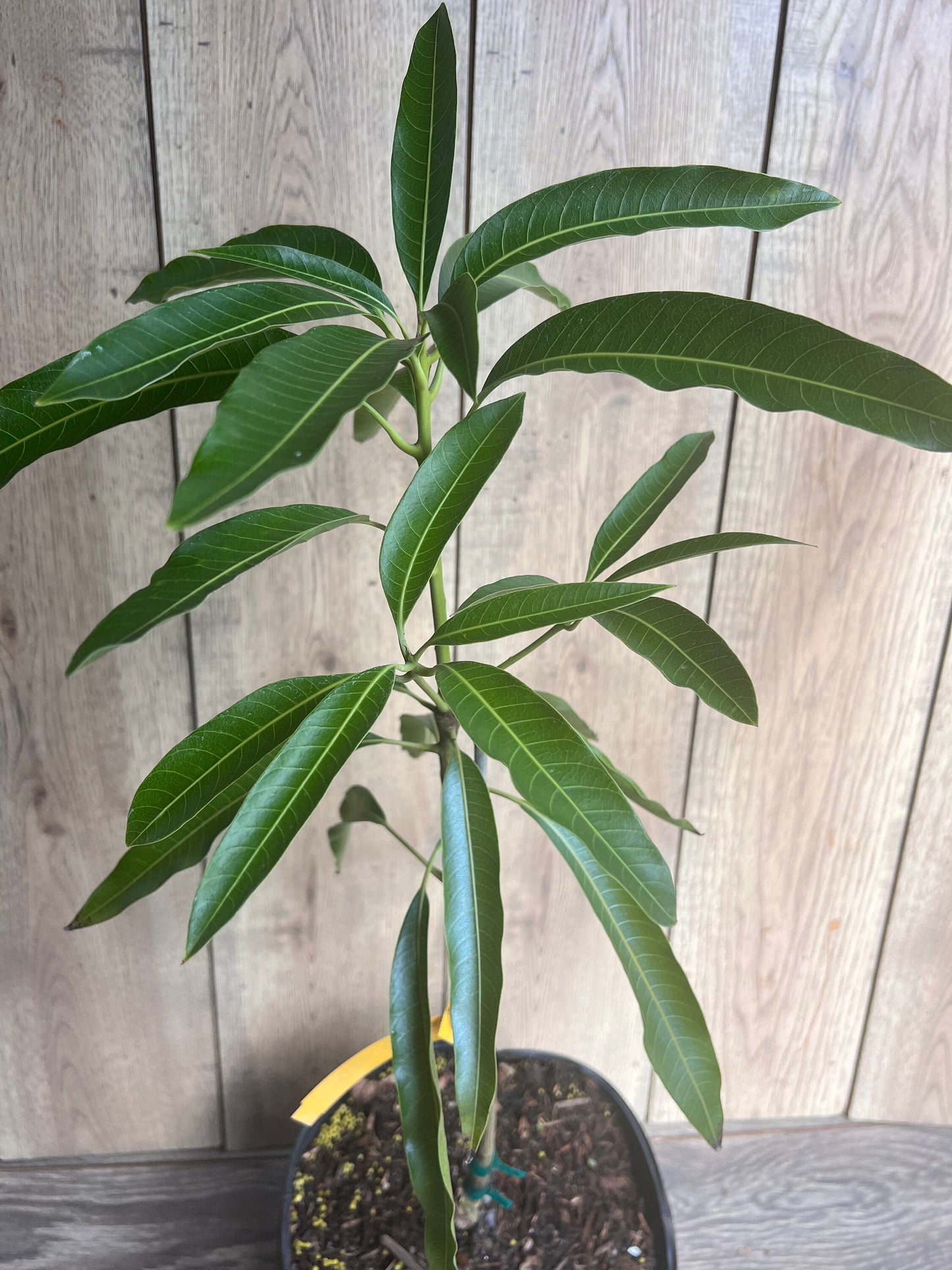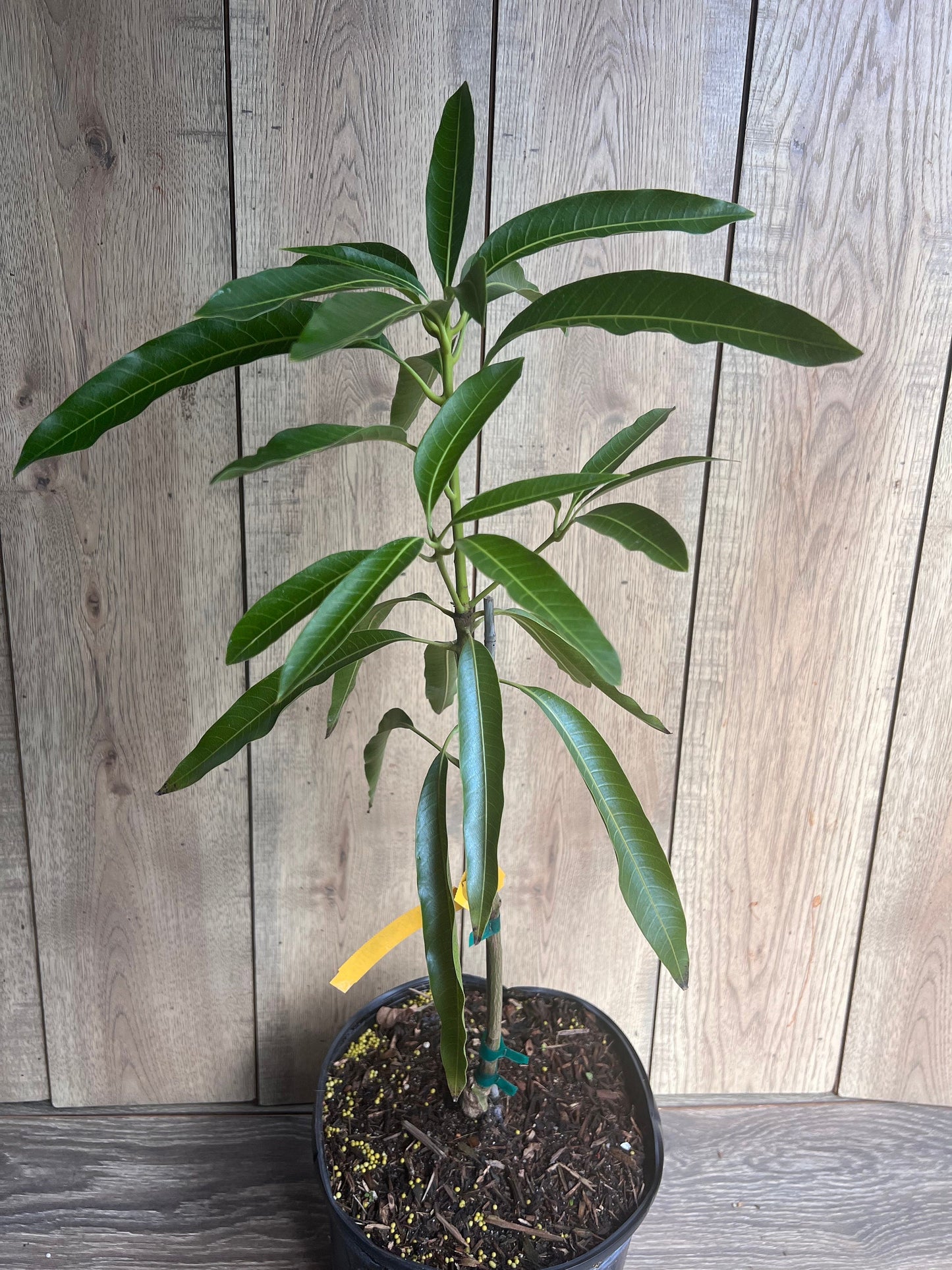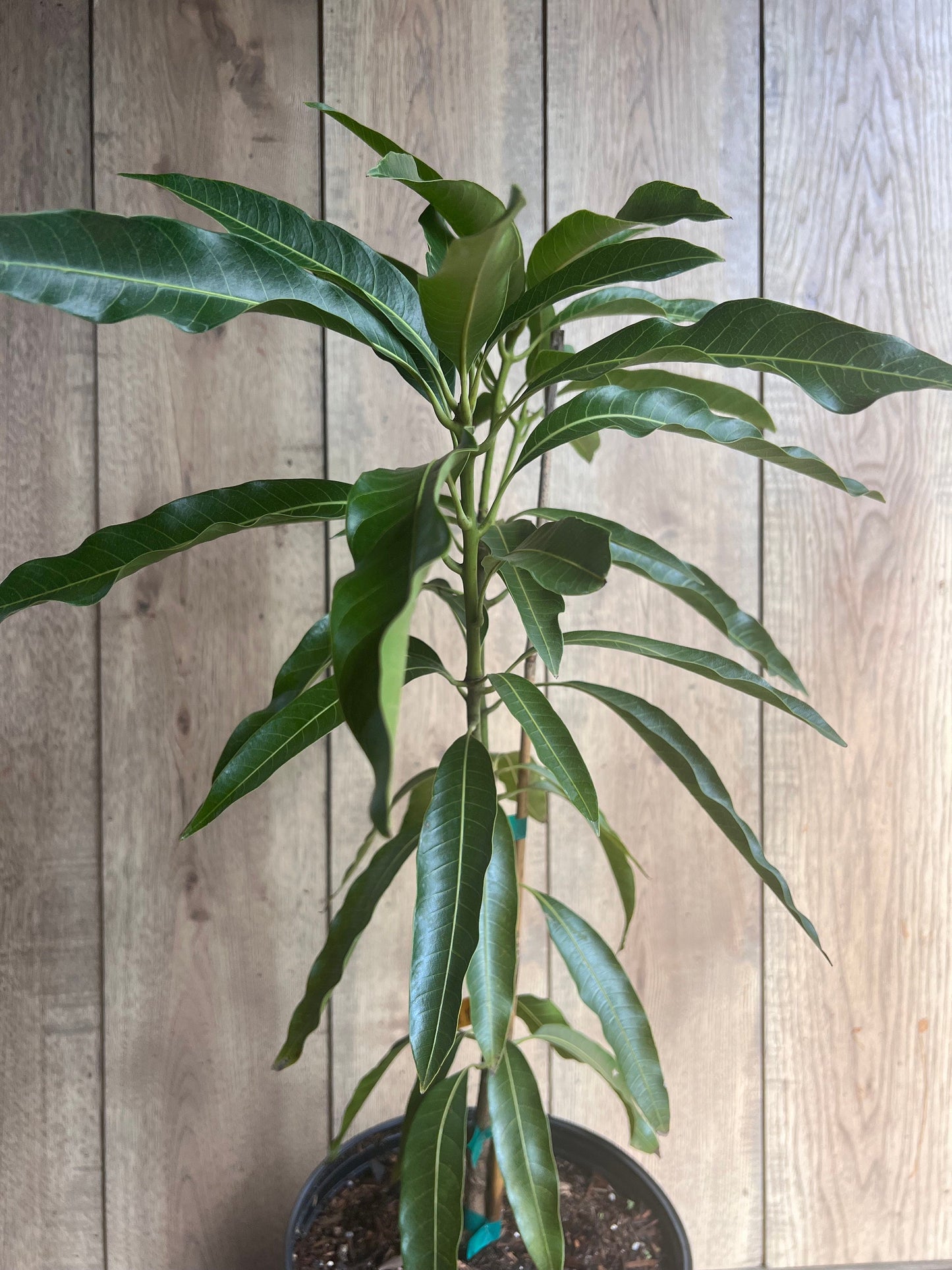Mallika Mango Tree. grafted in 3 gallons pot, No Ship to CA and HI
Mallika Mango Tree. grafted in 3 gallons pot, No Ship to CA and HI
Couldn't load pickup availability
You will receive one Mallika Mango in a 3-Gallon Pot, similar to the pictures.
About Mallika Mango
The Mallika Mango is a celebrated Indian mango variety prized for its sweet flavor, smooth fiberless flesh, and delicate floral notes. It is a hybrid created by crossing Langra and Chausa mangoes. Medium to large in size with golden-yellow skin that develops a red hue as it ripens, the Mallika Mango offers a juicy, melt-in-your-mouth texture enjoyed worldwide.
Perfect for fresh eating, blending into smoothies, or as an ingredient in desserts, this mango thrives in tropical and subtropical climates with proper sunlight and well-draining, fertile soil.
Light Requirements
- Full Sun: Requires at least 8 hours of full, direct sunlight daily to support healthy growth and fruit production.
- Ideal Spot: Plant in a bright, sunny area with maximum light exposure.
Temperature Needs
- Optimal Temperature: 70°F to 95°F (21°C to 35°C).
- Frost Sensitivity: Protect from temperatures below 50°F (10°C), especially in winter months.
- Indoor Growing: Ensure warmth and sufficient light for indoor cultivation.
Soil Requirements
- Well-Draining, Nutrient-Rich Soil: Prefers loamy, sandy, or slightly acidic-to-neutral soil (pH 6-7).
- Soil Enrichment: Improve fertility and drainage by adding organic compost or sand.
Watering
- Deep Watering: Ensure water reaches the roots by watering deeply.
- Water When: The top 2–3 inches of soil feel dry.
-
Seasonal Tips:
- During spring and summer: Water regularly to maintain hydration.
- In cooler months: Reduce watering frequency to avoid overwatering.
- Drought Tolerance: Once established, the Mallika Mango is somewhat drought-tolerant but produces better fruit with consistent care.
Fertilizing
- Use a balanced 10-10-10 fertilizer every 4–6 weeks during the spring and summer growing season.
- Incorporate organic compost or well-rotted manure annually to provide slow-release nutrients.
- Avoid over-fertilization, as excessive nitrogen can lead to more foliage but reduce fruit production.
Pruning
- Light Pruning: Trim dead or damaged branches and long, leggy growth.
- Timing: Prune during early spring before new growth begins.
- Purpose: Maintains the tree shape and improves airflow to reduce the risk of fungal diseases.
Pollination
- Self-Pollinating: Mallika Mango trees do not need another mango tree to produce fruit.
- Insect Pollinators: Bees and other insects aid in natural pollination.
- Indoor Growing Tip: Hand-pollinate using a small brush if necessary to ensure flowers are successfully pollinated.
Fruit Care
- Flowering & Fruiting: Mallika mango trees typically flower in spring and take 3–4 months to ripen.
- Harvesting: Fruit is ready when it turns golden yellow, yields to gentle pressure, and emits a sweet aroma near the stem. Avoid harvesting too early, as the mango will lack its full sweetness.
Pests & Diseases
Common Pests:
- Mealybugs
- Aphids
- Scale Insects
Treatment: Regularly inspect and treat infestations using neem oil or insecticidal soap.
Common Diseases:
- Powdery Mildew & Anthracnose: Ensure good airflow and avoid overhead watering.
- Root Rot: Prevent overwatering by ensuring proper drainage.
Container Growing Tips
- Use a large, deep container with a well-draining potting mix.
- Repot every 2–3 years to refresh soil and allow roots to grow comfortably.
With proper care, your Mallika Mango will reward you with sweet, juicy, fiberless mangoes perfect for fresh eating or culinary creations. Enjoy the taste of summer with this versatile and delicious variety!
Share
